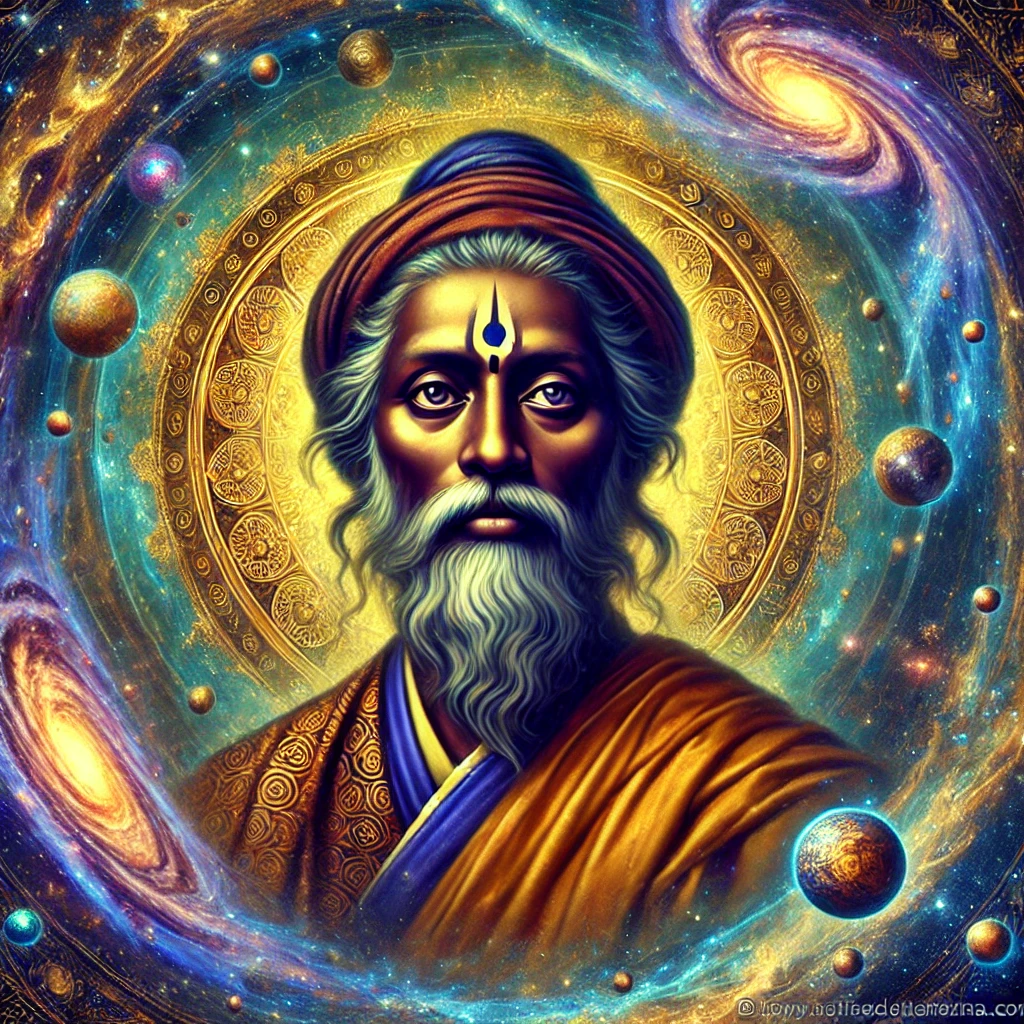Madhyamaka

Place of Origin: Ancient India (modern-day India and Nepal)
Century of Origin: 2nd Century CE
Associated Philosophers:
Overview of Madhyamaka
Madhyamaka, also known as the 'Middle Way' philosophy, is a school of Buddhist thought that teaches the importance of avoiding extreme views. Founded by the Indian philosopher Nagarjuna, Madhyamaka encourages people to understand that all things are empty of inherent existence, meaning that nothing has a permanent, fixed identity. This philosophy focuses on understanding the nature of reality by seeing the world as interconnected and without absolute distinctions. Madhyamaka teaches that by avoiding the extremes of thinking something exists as an independent, unchanging object or doesn’t exist at all, we can see the true nature of reality.
Madhyamaka metaphysics centers on the concept of 'emptiness' or 'sunyata,' which means that all things are empty of a permanent, fixed nature. Madhyamaka philosophers argue that nothing exists in isolation—everything is interconnected and dependent on other things. This philosophy rejects the idea that anything has its own independent existence. Instead, everything is constantly changing and exists in relation to other things, making reality more flexible and fluid than it appears.
In Madhyamaka, knowledge comes from recognizing the limits of what we can truly know. Madhyamaka philosophers argue that our usual way of seeing the world is shaped by misunderstandings, especially the belief that things have permanent, fixed identities. To gain true knowledge, Madhyamaka teaches that we must let go of these misconceptions and realize that everything is interconnected and dependent on other things. By seeing that all things are empty of inherent existence, we can achieve a deeper understanding of reality and move beyond ordinary ways of thinking.
Madhyamaka ethics emphasize compassion and wisdom. Since everything is interconnected and empty of a fixed identity, Madhyamaka teaches that we should not be attached to things or treat them as unchanging. This understanding leads to compassion because we realize that our own well-being is connected to the well-being of others. Madhyamaka also teaches that by seeing the world as it truly is, we can make better, more thoughtful choices that reduce suffering for ourselves and others.
Madhyamaka uses logic to break down extreme or rigid ways of thinking. Madhyamaka philosophers often use 'dialectical reasoning' to show that opposing ideas can both be false if they are too rigid. For example, they argue that believing something is absolutely real or absolutely unreal are both extreme views. Madhyamaka logic helps people find the middle way, showing that the truth lies in understanding the interdependence and fluidity of all things.
Madhyamaka aesthetics focus on appreciating the world without becoming attached to it. Since everything is interconnected and constantly changing, Madhyamaka encourages people to see beauty in the impermanence of life. Art and beauty in Madhyamaka reflect the idea that nothing lasts forever, and that by understanding the emptiness of all things, we can appreciate them in a deeper, more meaningful way.
Madhyamaka philosophy uses a method of questioning assumptions and looking deeply into the nature of reality. Madhyamaka thinkers often use dialectical reasoning to show that extreme views—such as thinking something is absolutely real or unreal—are flawed. This approach involves breaking down concepts that people take for granted, showing that all things are empty of independent existence and depend on other things. The goal is to help people find the 'middle way,' which avoids extreme positions and brings clarity.
Madhyamaka views humans as beings who misunderstand the nature of reality because we see the world in terms of fixed, permanent identities. It teaches that we tend to cling to things as if they were unchanging, but this causes suffering because everything is actually interconnected and constantly changing. Madhyamaka encourages humans to let go of their attachments and rigid ways of thinking, so they can see the true nature of the world and live with greater wisdom and compassion.
While Madhyamaka does not focus directly on politics, its teachings on interdependence and the emptiness of fixed identities can be applied to political ideas. Madhyamaka suggests that rigid thinking—such as seeing political systems or social structures as fixed—can lead to conflict and suffering. By understanding that everything is interconnected and constantly changing, Madhyamaka encourages more flexible, compassionate approaches to governance and leadership, promoting cooperation and the well-being of all people.
Madhyamaka was founded by the Indian philosopher Nagarjuna in the 2nd century CE. He developed the concept of 'sunyata' or emptiness, which became central to the philosophy. Madhyamaka influenced many schools of Mahayana Buddhism and played a key role in shaping Buddhist thought in countries like China, Japan, and Tibet. Over time, it has become one of the most important and respected branches of Buddhist philosophy.
Key themes in Madhyamaka include the idea of emptiness, the importance of avoiding extreme views, and the belief that all things are interconnected and dependent on each other. Madhyamaka teaches that by understanding the true nature of reality—seeing that everything is empty of a fixed identity—we can develop greater wisdom and compassion. It also emphasizes finding a 'middle way' that avoids rigid thinking and promotes balance.
Nagarjuna is the most important philosopher in the Madhyamaka tradition, and his teachings on emptiness and the middle way have had a lasting impact on Buddhist philosophy. Other key figures include Aryadeva, who was Nagarjuna’s student and helped expand Madhyamaka thought, and Chandrakirti, a later philosopher who wrote important commentaries on Nagarjuna’s work. These philosophers shaped the development of Madhyamaka and helped establish its role as a key school of Buddhist philosophy.




